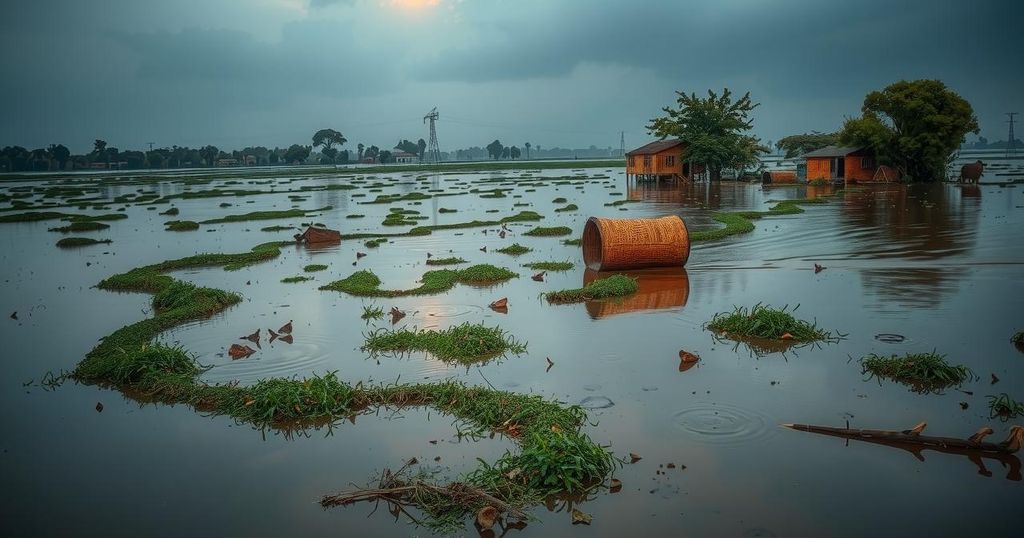Severe Flooding Intensifies Health Crisis in South Sudan: WHO Responds Effectively

Severe flooding in South Sudan has displaced over 226,000 individuals and affected 890,000 people across 42 counties, disrupting access to healthcare and exacerbating public health issues. WHO has mobilized emergency health kits to assist those affected while highlighting the need for climate-resilient health systems to combat ongoing health threats associated with climate change.
South Sudan is currently facing unprecedented flooding that has resulted in severe devastation across multiple regions, displacing over 226,000 individuals and disrupting livelihoods. As of early October 2024, the floods have affected 42 out of the country’s 78 counties, severely impacting accessibility to health services. In particular, 58 health facilities have been inundated while approximately 90 others are rendered inaccessible due to 15 main roads being cut off, notably those leading to the capital, Juba, where tertiary health services are concentrated. An estimated 890,000 people are affected by the flooding in these regions. The ongoing humanitarian crisis, already exacerbated by the influx of nearly 800,000 refugees and returnees from armed conflict in Sudan, has heightened vulnerability among the local population. Reports of cholera cases and increased malaria incidences, totaling over 120,000 instances as of September 29, 2024, further complicate the health landscape. Additionally, 55 snakebites have been documented over a five-week period. In response, the World Health Organization (WHO) has mobilized resources, dispatching approximately 88 metric tonnes of emergency health kits to areas such as Renk, Bentiu, Malakal, and Bor, which can provide treatment for over 870,000 individuals. These kits include vital medical supplies for cholera treatment and antimalarial drugs. The WHO is also collaborating with the South Sudan Ministry of Health to enhance emergency responses whilst working to protect health infrastructure and ensure medical supplies reach safe locations. Beyond immediate assistance, WHO emphasizes the need for climate-resilient health systems capable of adapting to ongoing health threats posed by climate change. They are advocating for sustainable investments aimed at strengthening health infrastructure against climate-related impacts, which remain a fundamental threat to human health.
The flooding in South Sudan, attributed significantly to climate change, has compounded existing challenges related to public health and humanitarian crises. The nation experiences heavy rainfall annually during its rainy season, but intensifying weather patterns have led to more severe flooding events, stretching community coping mechanisms to their limits. This situation is particularly dire given the already vulnerable status of South Sudan, which is home to a large population of refugees and returnees fleeing violence and instability from neighboring countries, namely Sudan.
In conclusion, South Sudan is grappling with an acute health crisis exacerbated by widespread flooding, which has displaced thousands and overwhelmed health services. The WHO’s comprehensive response highlights both immediate medical needs and the urgent call for long-term investment in climate-resilient health systems to adequately address the dual challenges posed by natural disasters and health threats. Continued collaboration with local authorities and community leaders is essential to safeguarding the health of affected populations.
Original Source: www.afro.who.int







